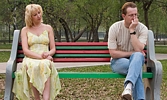|
|
 Acne (1,500) Acne (1,500)
 Addictions (1,500) Addictions (1,500)
 Advice (1,500) Advice (1,500)
 Allergies (1,092) Allergies (1,092)
 Alternative Medicine (1,500) Alternative Medicine (1,500)
 Anti Aging (1,500) Anti Aging (1,500)
 Breakup (1,500) Breakup (1,500)
 Cancer (1,499) Cancer (1,499)
 Dental Care (1,500) Dental Care (1,500)
 Disabilities (1,500) Disabilities (1,500)
 Divorce (1,500) Divorce (1,500)
 Elderly Care (1,498) Elderly Care (1,498)
 Goal Setting (1,500) Goal Setting (1,500)
 Hair Loss (1,500) Hair Loss (1,500)
 Health and Safety (1,497) Health and Safety (1,497)
 Hearing (1,500) Hearing (1,500)
 Law of Attraction (1,499) Law of Attraction (1,499)
 Marriage (1,500) Marriage (1,500)
 Medicine (1,497) Medicine (1,497)
 Meditation (1,499) Meditation (1,499)
 Men's Health (1,500) Men's Health (1,500)
 Mental Health (1,500) Mental Health (1,500)
 Motivational (1,500) Motivational (1,500)
 Nutrition (1,495) Nutrition (1,495)
 Personal Injury (1,499) Personal Injury (1,499)
 Plastic Surgeries (1,500) Plastic Surgeries (1,500)
 Pregnancy (1,496) Pregnancy (1,496)
 Psychology (1,500) Psychology (1,500)
 Public Speaking (1,500) Public Speaking (1,500)
 Quit Smoking (1,500) Quit Smoking (1,500)
 Religion (1,499) Religion (1,499)
 Self Help (1,500) Self Help (1,500)
 Skin Care (1,500) Skin Care (1,500)
 Sleep (1,500) Sleep (1,500)
 Stress Management (1,500) Stress Management (1,500)
 Teenagers (1,492) Teenagers (1,492)
 Time Management (1,500) Time Management (1,500)
 Weddings (1,500) Weddings (1,500)
 Wellness (1,500) Wellness (1,500)
 Women's Health (1,500) Women's Health (1,500)
 Women's Issues (1,500) Women's Issues (1,500)
|
Anxiety disorders are very common around the world, and in the U.S. alone almost 20% of the adult population is affected by a form of this mental illness. There are different types of anxiety disorders, including generalized anxiety, obsessive-compulsive disorder, panic disorder, post-traumatic stress disorder, social anxiety and specific phobias. In general, women are affected by anxiety disorders more often than men.
Anxiety can develop from a chemical or hormonal imbalance in the brain, genetics and environmental factors, such as built-up stress, a learned pattern of behaviors and unresolved issues. Physical symptoms and manifestations of anxiety include rapid heartbeat, chest pain, shortness of breath, dizziness, insomnia, tension and irritation. The good news is that while anxiety is widespread, sometimes very serious and can impact the quality of one's life, it is treatable.
There are also many treatment options for people who are affected by anxiety. Medication is often used, including antidepressants and anti-anxiety medicines, which can be used in short-term as well as long-term cases and can also be used in conjunction with other treatments. Therapies, done with a therapist or counselor, include behavior therapy, which involves controlling undesired behavior;cognitive therapy, which involves changing negative thought patterns; cognitive-behavior therapy; and relaxation and calming techniques, such as breathing, massage and aromatherapy.
There are also natural remedies for treating anxiety disorders and anxiety symptoms. Natural remedies include eating right to maintain blood sugar levels and exercising, as well as taking dietary supplements, such as a vitamin B complex. Anxiety disorders can be treated—or at the very least, its symptoms managed—so that you can exert control over the anxiety instead of anxiety having control over you. %E2%80%93you-are-not-alone.php" What are the symptoms and treatment for Anxiety disorders
|
|
|



